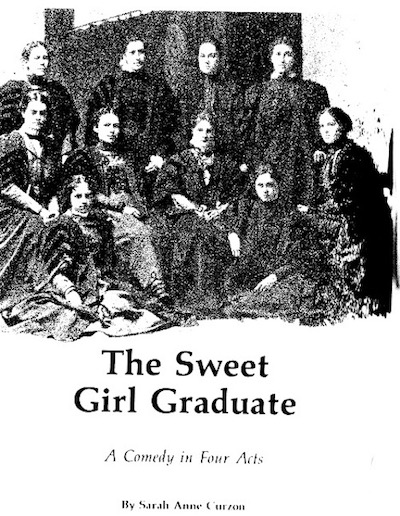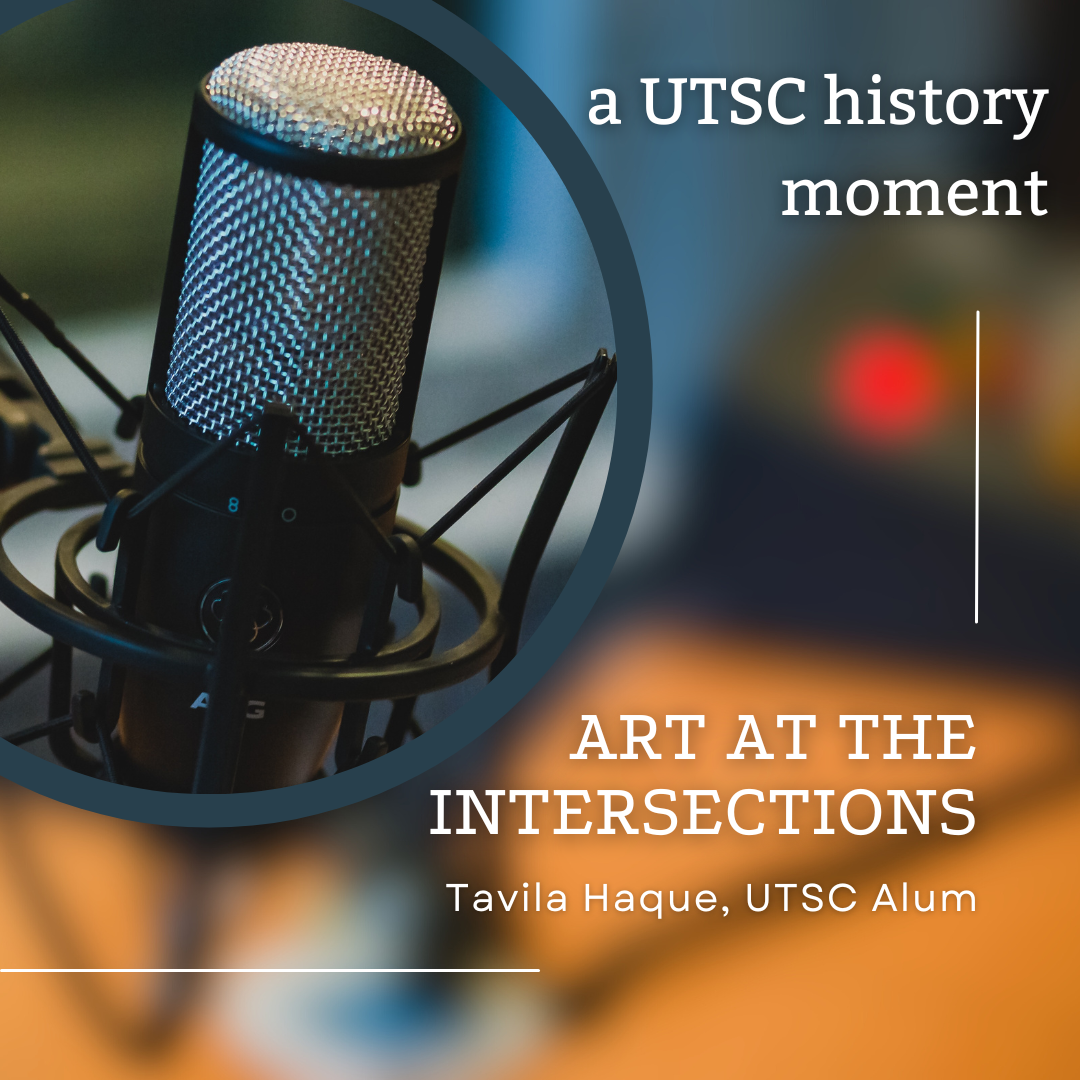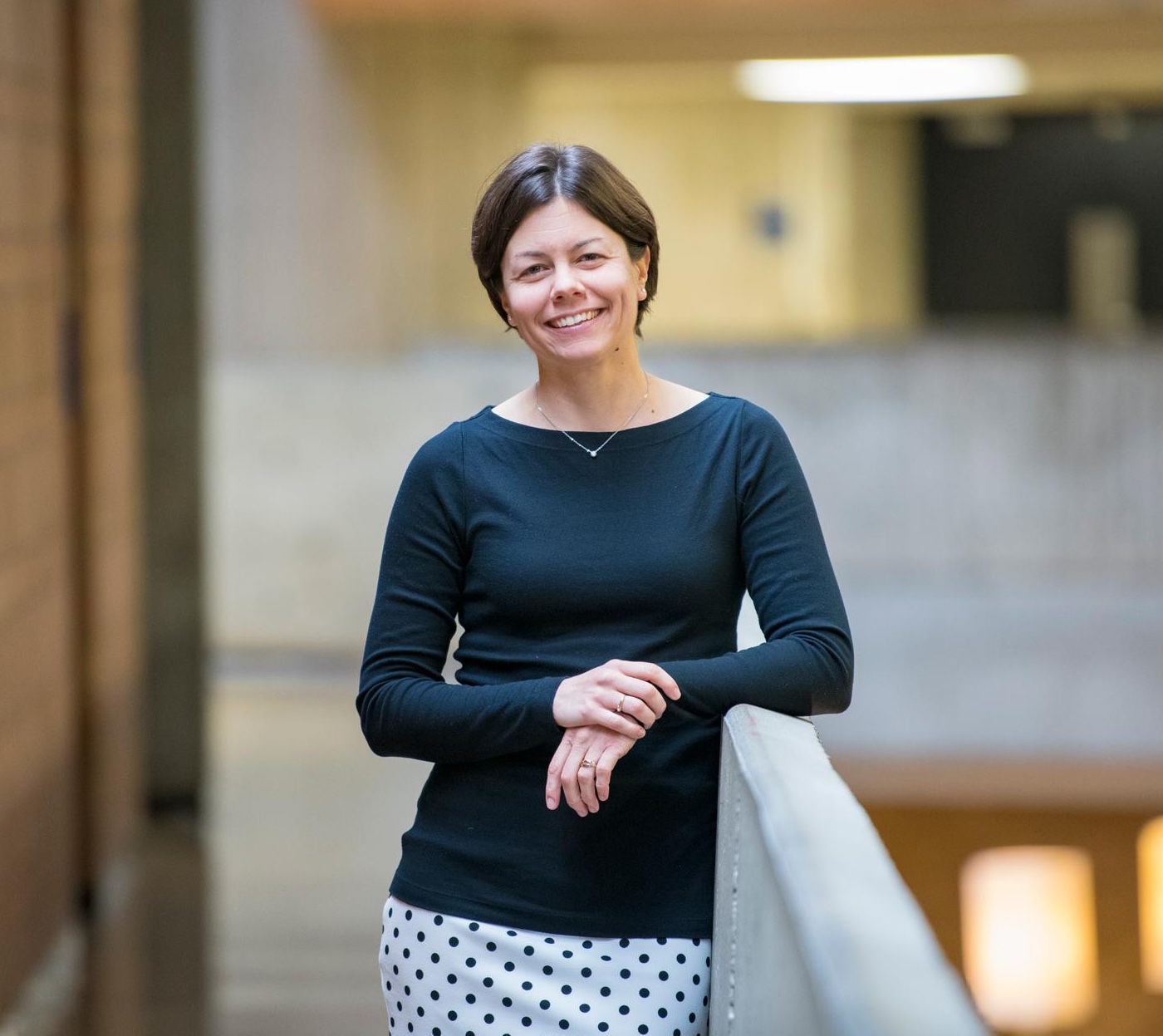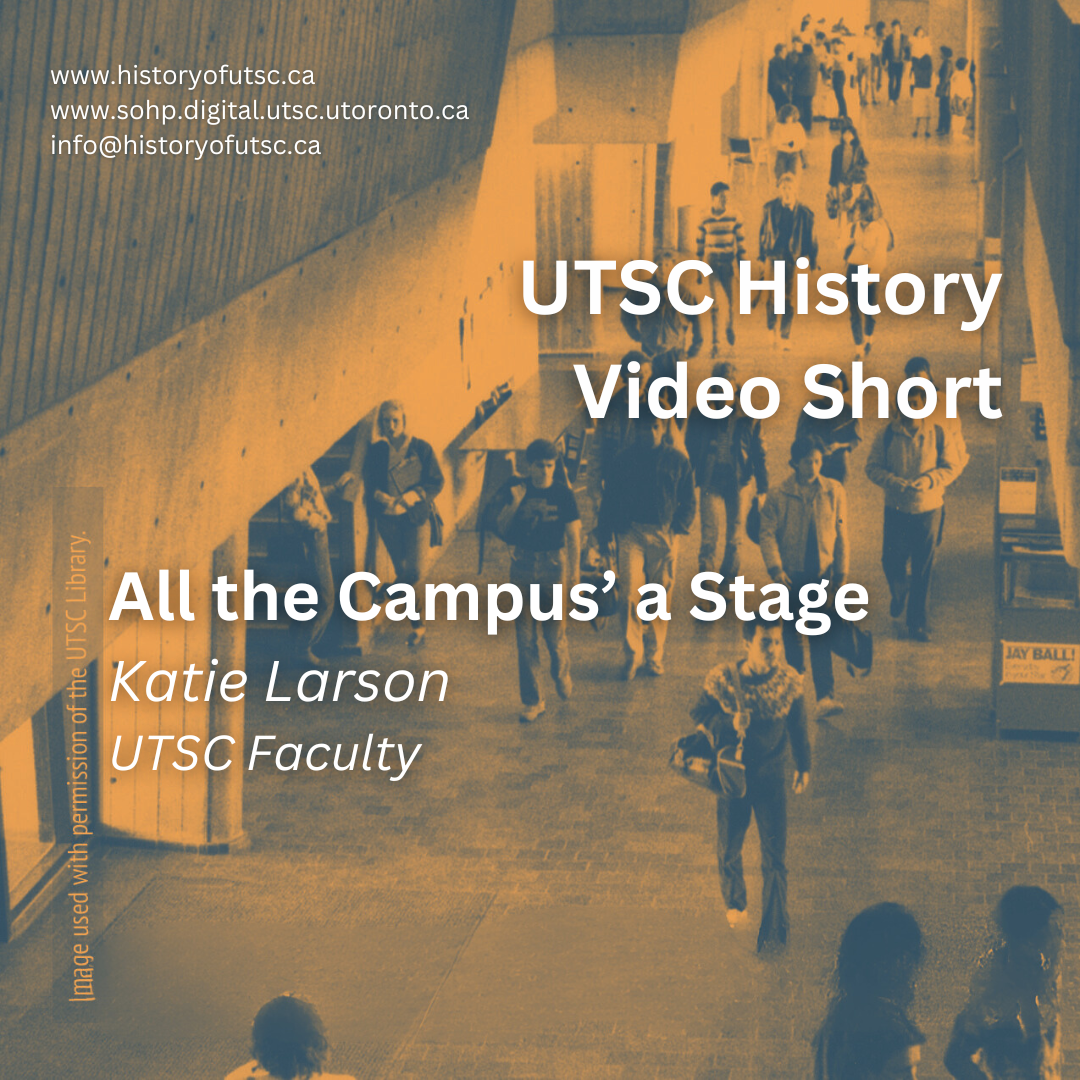Scarborough College celebrated it’s twentieth anniversary in 1984, the same year the University of Toronto celebrated the hundredth anniversary of the admission of the first woman to University College, 1884. As part of the celebrations, the Scarborough College Women’s Centenary Committee sponsored a production of The Sweet Girl Graduate (“Women’s Centenary Committee” 1985). Written in 1882 by Sarah Anne Curson, the play tells the story of a young woman who, barred from attending University College, disguised herself as a man to gain admission. She revealed her identity only after graduating with a Master of Arts degree (Curson 1882).
Despite this opening to women in the late 19th century and almost 80 years later, the 1970 Report of the Royal Commission on the Status of Women noted that slightly more girls than boys were graduating from high school, but those numbers were not sustained in terms of university degrees where men surpassed women (Bird et al. 1970, 60). In 1967, although over half of the graduates in education, library science and social work in 1967 were women, the more traditional female academic fields, only a third of total graduates in arts, science and commerce were women (Bird et al. 1970, 9). Thus, as Scarborough College opened its doors, higher education remained a male dominated field.
Scarborough College opened its doors to 191 students in 1965, 53 of whom were female (28%) and 138 of whom were male (Ball 1989). In 1965, as the College actively recruited faculty members, there were 43 faculty members; three were female (7%) (Ball 1989). By 1984 and Scarborough College’s 20th anniversary, the percentage of female students at Scarborough College had almost doubled, slightly outnumbering their male counterparts – 51% of the total student body (UTSC History Project 2020, “Historic Student Enrolment Data Report”). Female faculty, despite having grown in representation, did not reflect the composition of the student body – only 17% of total faculty appointments were women (Scarborough College, University of Toronto 1984).
A roundtable discussion, with a focus on the lived experience of female identified students, faculty and staff at UTSC from the 1960s to the present, was hosted in the summer of 2020 (UTSC History Project 2020, “Women in Higher Education”). A number of themes emerged from this conversation: the persistence of conscious and unconscious bias with respect to gender and race that creates barriers to women’s participation at all levels; the ways in which women have been and continue to be judged on gendered notions of suitable behaviour and appearance; the persistent role of violence in the lives of women generally and at all levels within the academy; the impact of the lower levels of female representation on the length of time taken to achieve effective change; the ability of those entering the academy to ultimately achieve success in an equitable fashion; as well as the reality that changes made have resulted from the dedicated advocacy work of the women affected within the academy.
Dean William Gough, interviewed in 2019 prior to the Round Table discussion, reflected on the progress towards gender equity to date (Berkowitz 2019). Gough noted that female students now outnumber males roughly 60:40 In his view, administrative staff reflect the gender composition of our community due some part to greater turnover and as a result replacement can take place more quickly than with faculty. Gough went on to say that we are currently hiring faculty at a rate of “50-50” at the junior ranks but not so at senior ranks. In fact, he reported that the ratio of female to male full professors was 20:80 a few years ago and while it is moving in the right direction, in terms of replacement, “it will take a while for the body of Associate Professors to move up.” The reason for that in his view, was partly that the cycle to retirement for early career faculty members is on average 30 years, therefore the replacement rate is much slower. There have been proactive measures taken such as ensuring that there is at least one female faculty member on each hiring committee. It should be pointed out that this policy was instituted in the mid-1980s by former UTSC Principal Joan Foley in her role as U of T Provost (“Search Committees Must Include Women: Foley” 1986). According to Gough, research indicates that to be successful though, at least one third of the committee membership needs to be female and that they are pushing for that now. Gough suggested further that to simply look at the overall numbers was to miss “stratification” that exists at the level of individual departments and between teaching and research streams and that “there may be other underlying systematic biases there, too, that still need to be routed out.”
One of our roundtable participants warned that the more important story is found not in the numbers but in “the true stories, or the real-life stories, that are behind those numbers, and the real challenges that women students, staff, and faculty experience… in the complicated lives that they live.“ In the words of the participants,
“it’s always having to navigate around not being,…my authentic self”
“women faculty, are assessed and judged still on how they dress and what they wear, in addition to our age issues, how we identify, our sexuality, race issues”
“We’ve talked about that leaky pipeline for the entire decade that I was in training, and the entire decade that I’ve been a faculty member and we’ve done nothing about it. So, the sense of urgency that we mentioned, the sense of being impatient and making something happen now, because we’ve heard the story of “change will come” long enough, I think is definitely something that resonates for me.”
In the words of one student, “what I really learned here and what I really hear a lot of the other powerful women say here is that your existence is resistance because these places weren’t made for us.” (Lee 2015)
Almost one hundred and forty years after the admission of the first female student to U of T and despite the changes that have taken place, women are still feeling the need to adapt in many ways to an organizational culture that was designed by and for men.
More to come….
To listen to the full interview with Dean Gough and other UTSC faculty, staff and students, visit: Stories of UTSC
Bibliography
1986. “Search Committees Must Include and Recruit Women: Foley.” University of Toronto Bulletin, March 10, 1986. University of Toronto Scarborough Library, Archives & Special Collections.
Ball, John L. 1989. The First Twenty-Five Years. Toronto: Scarborough College, University of Toronto.
Berkowitz, Christine. 2019. “Interview with William Gough.” Oral history conducted by Christine Berkowitz, Stories of UTSC, University of Toronto Scarborough. https://ark.digital.utsc.utoronto.ca/ark:/61220/utsc10811.
Bird, Florence, Jacques Henripin, John P. Humphrey, Lola M. Lange, Jeanne Lapointe, Elsie Gregory Macgill, and Doris Ogilvie. 1970. “Report of the Royal Commission on the Status of Women in Canada.” Ottawa: Information Canada. https://epe.lac-bac.gc.ca/100/200/301/pco-bcp/commissions-ef/bird1970-eng/bird1970-part1-eng.pdf.
Curson, Sarah Anne. 1882. “The Sweet Girl Graduate.” Accessed on PLEDGE Project on October 6, 2022. https://www.pledgeproject.ca/plays/sweet-girl-graduate/.
Lee, Jennifer. 2015. “Interview with Diane Hill.” Oral history interview conducted by Jennifer Lee, Stories of UTSC, University of Toronto Scarborough. https://ark.digital.utsc.utoronto.ca/ark:/61220/utsc10788.
Scarborough College, University of Toronto. 1984. Calendar 1984-85. Toronto: University of Toronto. https://utsc.calendar.utoronto.ca/sites/default/files/PDFs/1980-89/UTSC_Calendar_1984-1985.pdf.
“Women’s Centenary Committee.” 1985. University of Toronto Scarborough Library, Archives & Special Collections, UTSC Archives Legacy Collection, Subseries 0002-B-13: Committees with Unknown Office of Origin. https://discoverarchives.library.utoronto.ca/index.php/womens-centenary-committee.
UTSC History Project. 2020. “Historic Student Enrollment Data Report.” UTSC Office of the Registrar. Last edited Oct. 19, 2020.
UTSC History Project. “Women in Higher Education – A Round Table Conversation.” Recorded Aug. 21, 2020.





